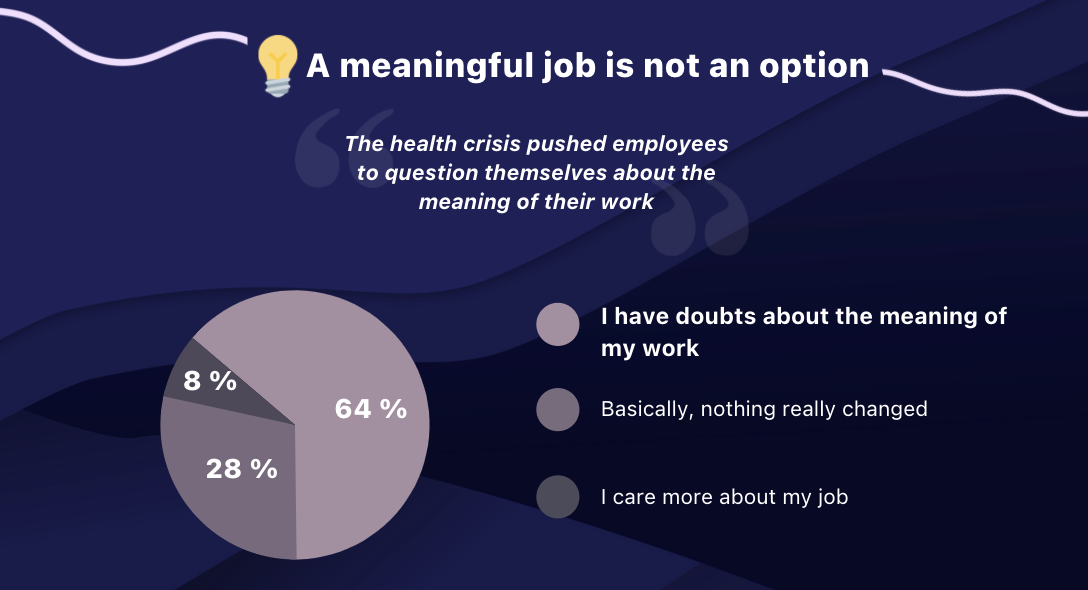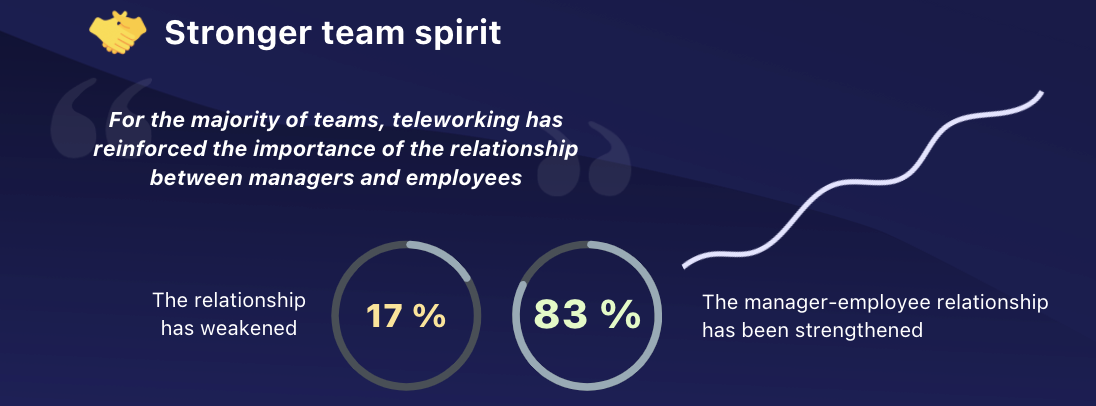We were promised the demise of corporate life as we knew it. We were told of the equally frightening emergence of a new world of work that would be made up of millions of over-connected but deeply isolated teleworkers.
It is true that the brutality of the health crisis and the mass adoption of telework have been cause for concern. For many of us, remote working was totally new: before the crisis, less than 10% of us worked remotely regularly and more than 50% had never even tried it [1]. In addition, there was a cultural block: telework was frowned upon and perceived negatively by many employees and managers.
Returning to the office does not mean returning to pre-crisis managerial practices.
Eighteen months later, it is clear that the vast majority of companies and teams have been able to adapt to this new context. This has been made possible by the adoption of new collaboration tools within teams (Zoom, Slack, MS Teams, Popwork, etc.).
It is also and above all thanks to the daily mobilisation of managers. They are the ones who have ensured continuity and maintained the link with employees, by developing new relationships with their teams and by playing the role of HR on many topics.
While it is still too early to measure the long-term impact on our ways of working, trends are already emerging. In order to better understand the changes at work, at Popwork, we decided to survey 300 employees and decision-makers (general management, HR, managers) over the past few weeks.
According to the majority of employees, the role of managers is more important than ever but needs to be totally rethought.
Our research shows that the world of work is changing and teams are looking for more flexibility and autonomy. This is an evolution rather than a revolution, as some of these expectations already existed before the crisis. Seven main findings emerge from our study:
-
Teleworking is popular but not the ideal we strive for: ideally, employees would like to spend 50% of the week working remotely and 50% in the office.
-
Paradoxically, teleworking has actually improved team collaboration: for almost 60% of them, teleworking has strengthened teamwork.
-
Although workloads increased sharply during the health crisis, teleworking also allowed for a better work/life balance for many employees.
-
The need to find meaning in one's work has never been stronger: nearly two-thirds of employees say they question the meaning of their work.

-
The manager-employee relationship has been strengthened by the health crisis: 80% of employees feel they have a better relationship with their manager than before the crisis.

-
Managers have invested a great deal of time in helping their teams through the crisis: they spend an average of 11 hours a week on management.
-
At the same time, more than 50% of employees believe that the role of managers needs to be completely rethought.

There will therefore be a before and after health crisis. Going back to the office does not mean going back to the way things were before. Employees are looking for more meaning in their work but also more freedom in the way they work, starting with the choice of teleworking or face-to-face work.
A hybrid work model is emerging. A new model which suggests many opportunities for employees but also risks for companies if management methods and the means and role of managers do not evolve at the same time.
How would you rethink the role of managers?
[1] source : INSEE 2017
Article initially published on Linkedin

